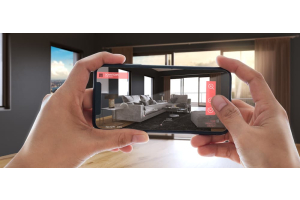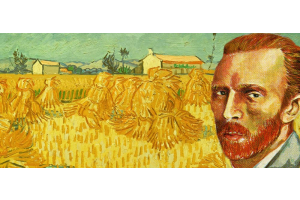We use cookies to offer you a better experience. For more information on how we use cookies you can read our Cookie and Privacy Policy.
12 Best Healthcare Apps for Patients

Technology has allowed consumers to be more involved in their own healthcare decisions over the years, and no place has that been more apparent than with apps. The Apple Store and Google Play app store have an average of nearly 50,000 available health apps on their respective marketplaces, and health app adoption by users has grown significantly as well.
With so many apps available, which ones can you turn to for your wellness needs? Here are the top picks among the best healthcare apps available today.
What is a healthcare app?
While many apps make up the “health” category, not all are considered “healthcare” apps. Those that teach you how to do yoga, for example, may go a long way in helping you meet your fitness goals, but they don’t tie into your ongoing, physician-led care routine. To read about the best fitness apps, check out our HP Tech Takes articles here.
For this article, we focus on apps you can use in conjunction with your provider-based health regimen. They offer health tracking and reporting, medical reminders, and communication with your provider, and some actually serve as the platform for virtual visits.
Benefits of healthcare apps
While apps range in price from a few dollars for a one-time download to $10 or more for monthly subscription benefits, the value and benefits may include better self-management of health, documentation, and communication with your providers. These apps can empower patients to be more proactive about their health and even reduce the cost of healthcare in the long run.
Many mobile apps cost nothing, so how can you decide if a paid or "premium" app is worth the fee? You may want to try it out for a test drive, then note which of the upgrades are missing from your experience. Even the free apps, however, can provide you with a detailed log of your daily habits, which can drive better choices in the future.
Top healthcare apps for patients
With so many apps to choose from, it’s difficult to separate the promising options from the rest. However, the best health apps on our list are time-tested and have strong reputations built on hundreds, sometimes thousands of positive reviews to back them up.
Consider how each app can help you learn more about your health while providing you with the data tracking you need during your next important talk with your doctor.

1. Medisafe Pill Minder
Medisafe Pill Minder and Tracker helps you stay on top of your medications. It’s available on Android and iOS, and it comes with doctor visit management and appointment alert features. It even has health measurement trackers. For a small fee, you can upgrade to an ad-free experience with additional notification sounds and measurement tools.
2. Medical ID
What if someone finds you and your phone while you’re suffering a medical emergency, but you are unable to communicate your health issues? Medical ID is a free Android app with an optional premium option that lets you create multiple medical profiles to store in your phone.
These are easily accessible from your home screen and give the viewer a look at your most important medical data, including medical contacts, blood type, and allergies. Medics or emergency staff can see the essentials at a glance before treating you. The mobile health app will share your GPS location with your emergency contacts, too, even after the app is closed.
3. dminder
Vitamin D has been praised for its role in building your immune system and even helping you sleep. Most of us don’t get enough of it, though, and dminder app seeks to change that. The app calculates the best time to get sun, according to your location, and sends you an alert when it’s time to go outside.
When you track your time, the app will actually let you know when you need to get out of the sun to avoid sunburn. It will estimate your total IU (International Units) of D for you. This free app is available on Google and Apple and comes with premium upgrades, like a history of your vitamin D intake, which could be useful when talking to your doctor.
4. MyFitnessPal
MyFitnessPal is one of the best health tracking apps in the Android and iOS stores. And a desktop version is available, too. It’s an all-in-one tracker for activity, mindfulness, food logging, sleep, fertility, and more. You can set weight or activity goals, create meal plans, and sync the app with most fitness tracking devices and watches.
If you pay to upgrade, you’ll get premium features like more detailed reporting, including food macros and logs you can download or email to your healthcare provider. The app also features a robust online community for weight loss support and advice.
5. Diabetes:M
Diabetes:M is an app designed to help diabetics take some of the guesswork out of managing their glucose levels, and it’s available on both Android and iOS. It lets you track and monitor your food, while also keeping tabs on your glucose and insulin levels as well as injection sites. Store data and get comprehensive reports which you can then share with your physician. The pro version also has room for an additional profile and connects to your Bluetooth-enabled monitoring device.
6. Apple Health
Apple Health is the iOS health “brain” and health tracker app that comes standard on all Apple devices. It monitors sleep, food, activity, symptoms, heart rate, and respiration. The app also seamlessly integrates with more than 1,000 other apps and can give you detailed reports on entire categories of wellness.
Apple Health pairs with participating health institutions to keep your lab results and medical records on hand at all times and comes with a Medical ID profile for emergency use, too. Medical donors can even designate themselves and communicate their wishes through the app. If you use an Apple Watch, this is a must-have.
7. Heal
Get access to qualified and board certified doctors in a variety of fields without ever leaving your home when you use Heal. It offers professional appointments through in-person, in-home visits or as a telemedicine (virtual) option for 11 states, with more on the way. The app works with your health insurance and provides transparent, up-front pricing on a number of services, including regular care, preventative care, urgent care, and mental health care.
8. Eyecare Live
The Eyecare Live online doctor app helps with eye health related treatments by connecting you to a virtual eye doctor within an hour. It also allows you to renew prescriptions online, as long as they are less than 2 years old. This medical app is free and available for Android and iOS, though you’ll have to pay an additional fee for eye tests and virtual doctor's visits.

9. AliveCor
Pair the AliveCor app with one of its supported Kardia heart measuring medical devices, and you’ll get access to an FDA-cleared EKG recording wherever you go. The app detects real-time atrial fibrillation, bradycardia, and tachycardia, as well as normal heart activity. Track your data and share it with your doctor during your next appointment. The free app is available for Android and iOS devices; Kardia devices start at $90 and up.
10. Drugs.com medication guide
Learn about side effects, drug interactions, dosing guidelines, and more with the Drugs.com free app for Android and iOS devices. The pro version costs extra and features additional pill identification information and tracking features.
11. WebMD Baby
Stay on top of all those infant-care tasks with the free WebMD Baby app, available for Android and iOS. It covers four areas of care – feeding, sleep, diapers, and growth. From recording baby’s weight to scheduling the next feeding, this app has it all, including a virtual baby book and videos from top doctors to help answer all your questions. You can share data with caregivers and doctors, and sync across all of your devices.

12. mySymptoms food diary & symptom tracker
Is it something you ate? Find out with mySymptoms tracker app, which tracks what you eat along with bowel movements and various symptoms. It helps you find clues in the data history, and is useful for those who suspect allergies or digestion ailments. The app is available on iOS and Android, and it can give you a way to talk to your doctor about your concerns. It’s free, but there’s also a paid version with additional features.
Summary
Apps may help you rethink how you approach your health while putting you in the driver’s seat to take decisive (and healthy) actions before small problems escalate. An app is no substitute for medical treatment, however, and you should refer any questions you have while using an app to your healthcare provider.
Since many apps offer widely accepted medical facts and data to help you know more about your condition, they could prompt you to explore new conversations with your healthcare professionals. If nothing else, medical apps for patients lead to better documentation so that the next time you meet with your physician, you’ll know more about your symptoms and habits, helping you get the most from your doctor visit.






